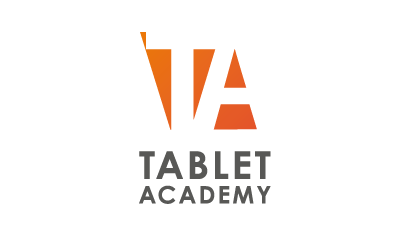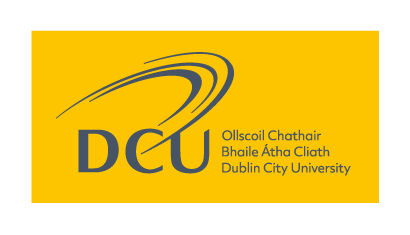Types of degrees in the UK
Find out about the different degree types in the UK and what you can do with them once you graduate.

A degree isn’t the be-all and end-all, but it can give you knowledge and tools to thrive personally and professionally. With so many degree types on offer, we’ve written this guide to bust through the jargon so you can decide which, if any, is the right type for you.
University degree levels in the UK
You may not know it, but all educational qualifications in the UK are on a scale from level 1 to 8 – with level 8 being the highest you can achieve.
Degree-level courses start on level 4, with qualifications including Certificates of Higher Education and Higher National Certificates.
Level 5 includes higher-level diplomas, while level 6 is for undergraduate degree courses like bachelor’s degrees.
Postgraduate degrees start at level 7 with master’s degrees and level 8 is for doctorates.
Already lost? Don’t worry, we’ll explain what all those mean in just a minute.


What is an undergraduate degree?
An undergraduate degree is an entry-level degree for students in the UK. Undergraduate degrees range from levels 4 to 6.
Normally, you don’t need a previous degree to start an undergraduate course. It’s very common for young people straight out of college or sixth form to go straight into an undergraduate degree. However, it’s also an excellent option for mature students who want to specialise in something new. It’s never too late to start learning.
Different types of undergraduate degrees
In the 2021/22 academic year, there were almost three million undergraduate students in the UK and the numbers keep on rising. So, if you decide to study you certainly won’t be alone.
We’ve laid out the key types of undergraduate degrees in the UK, below.
Bachelor’s degree
One of the most common types of undergraduate degrees is the bachelor’s. These academic degrees usually last three years and are designed for students who want a strong foundation of knowledge in a subject.
The entry requirements for a bachelor’s degree vary by university, but many universities ask for at least two A-Level passes. It is, however, possible to get on to a degree course with other recognised qualifications including the International Baccalaureate (IB) or if you’ve already completed a diploma like a Higher National Diploma (HND) or Diploma of Higher Education (DIpHE).
Some of the most common types of bachelor’s degrees include:
- Bachelor of Arts (BA)
- Bachelor of Science (BSc)
- Bachelor of Education (BEd)
- Bachelor of Engineering (BEng)
- Bachelor of Laws (LLB)
- Bachelor of Medicine, Bachelor of Surgery (MBChB).
Foundation degree
If you’re looking for a degree that blends the academic with a more practical approach, a two-year foundation degree could be perfect.
These shorter vocational degrees are the equivalent of two-thirds of a bachelor’s. You might study for a foundation degree to prepare for a bachelor’s or a role in an industry you’re new to.
Some of the common foundation degree subjects include:
- Art & design
- Nursing
- Business
- Leisure & tourism

Top-up degree
The equivalent of the final year of a bachelor’s degree, these courses are designed for learners who want to top up their knowledge. Usually, this is to progress in a particular career or industry.
They’re similar in length to a foundation degree (1-2 years) but delve more deeply into a topic.
Higher National Certificate (HNC) & Higher National Diploma (HND)
At level 4 on the qualification scale is the HNC. Like other degrees at this level, it’s a vocational course.
HNCs usually last one year if you’re studying full-time, but can be done part-time if you’re working too.
One step up from a HNC is the HND, on level 5. These courses take two years if you study full-time. You’ll usually need at least one A-Level to apply for both degree types.
Some of the most common HNCs and HNDs cover subjects like:
- Beauty
- Agriculture
- Construction
- Engineering
Certificate of Higher Education (CertHE)
Essentially the same as completing the first year of a bachelor’s, a CertHE is a one-year level 4 qualification. It’s the most basic degree level and is the perfect way to get your foot in the door if this is your first time in higher education.
To get on to a CertHE course, you’ll need 80 UCAS tariff points or an A-level, a GCSE in English with an A to C grade and a professional portfolio.
What’s great about these qualifications is that they can not only help you get onto a bachelor’s course, but you can even use them as credit towards your degree. So, with a completed CertHe, you can enter year two of a Bachelor’s course – if you’ve really developed a taste for the subject.
Diploma of Higher Education (DipHE)
Taking a step up, on level 5 is a DipHE, which is equivalent to the first two years of a bachelor’s degree. Because of this, it’s often used by students who either can’t fully commit to a three-year degree or want to get into work more quickly.
Like a CertHE, it can also be used as credit towards a bachelor’s degree if you decide to commit to one.
Certificate of Continuing Education
Although not technically a degree program, a Certificate of Continuing Education can help kickstart a new career or specialism.
Offered by universities and providers like FutureLearn, they can be in-person or online courses with a focus on personal and professional development. These may be short courses with certification or online microcredentials, which can even count as credit towards university degrees.
We cover topics including:
What is a postgraduate degree?
A postgraduate degree is a type of advanced academic degree which usually requires another degree before you can start. It delves deeper into a subject and expects students to work more independently, developing research and analysis skills beyond what’s expected at the undergraduate level. For an in-depth understanding of the differences between postgraduate and undergraduate degrees, check out our undergraduate vs postgraduate degrees article.
Different types of postgraduate degree
Postgraduate degrees in the UK go from levels 6 to 8, putting them at the highest end of the educational pyramid. They’re a great option for students who want to become an expert in their chosen field. We’ve broken down the primary degree types at the postgraduate level for you to consider, below:
Master’s degree
The most common postgraduate degree type, a master’s degree delves deeper into a specific area of a wider subject.
To get onto a master’s course, you’ll usually need to have completed a bachelor’s course with at least an upper second-class honours (2:1). They last two years (if you study full-time) and you’ll be expected to work independently leading up to a final thesis or research project.
By completing a master’s degree, you’re expected to really master a subject – it’s got the name for a reason. Master’s degrees can be a fantastic route for progression into more senior management and leadership roles. Some of the most common types of master’s degrees include:
- Master of Arts (MA)
- Master of Science (MSc) e.g. MSc Nursing
- Master of Research (MRes)
- Master of Public Health (MPH)
- Master of Business Administration (MBA)
Postgraduate Certificate (PGCert)/Diploma (PGDip)
If you’re studying alongside other work commitments, a postgraduate certificate or diploma could offer a solution.
Although taught at the same level as a master’s, courses are shorter and not as intensive. A PGCert usually lasts 15 weeks, whilst a PGDip lasts up to 30 weeks if you’re studying full-time. Both qualifications are a great way to boost your personal development with recognised certifications.
Postgraduate Certificate in Education (PGCE)
If you want to become a teacher, you need a PGCE – it’s as simple as that.
You’ll complete a PGCE as part of your teacher training but can only start teaching once you have Qualified Teacher Status (QTS). You get QTS through a combination of your academic PGCE and on-the-job training at a school or educational institute.
Like many of the other qualifications we’ve covered, you can also use your PGCE as credit for other degrees, such as a master’s degree.
Doctorate (PhD)
The highest level of degree certification, a doctorate is level 8 in the qualifications framework – you don’t get any higher than this!
A full-time PhD lasts anywhere from three to four years, but it can last up to seven years if you decide to do it part-time. As part of a PhD, you’ll do independent research and be expected to have developed a new perspective or solution to a topic area within a subject.
PhD students often move into consultant roles or research roles in higher education. Plus, you get to call yourself a doctor.
Explore online degrees at FutureLearn
Whatever degree is right for you, we’ll help put you on the right track.
Collaborating with some of the best universities around the world, we provide undergraduate and postgraduate degree courses to deepen your knowledge and level up your qualifications. Here’s just a taste of what we offer:
Online bachelor’s degrees
Partnering with Newcastle University, Australia, we offer students the chance to study a fully online Bachelor of Arts on creative subjects like:
- Creative Writing
- Social Media and Digital Culture
- Global First World War
Online postgraduate certificates
Stack microcredentials with a range of online short courses to build towards full PGCerts including:
- PGCert in Leadership and Management Practice from Nottingham Business School, Nottingham Trent University
- Postgraduate Certificate in Education (PGCE) from Coventry University
- Postgraduate Certificate in Global Development Management from Open University
Online master’s degrees
Ready to take on a full master’s degree? We work with fantastic universities to make studying at the master’s level more accessible. Our master’s degree courses include:
- MSc Psychology from Brunel University
- Executive MBA from The University of East London
- MSc Contemporary Education from academyEX
Looking to find out more about online degrees? Check out our how to prepare for your online degree article.












